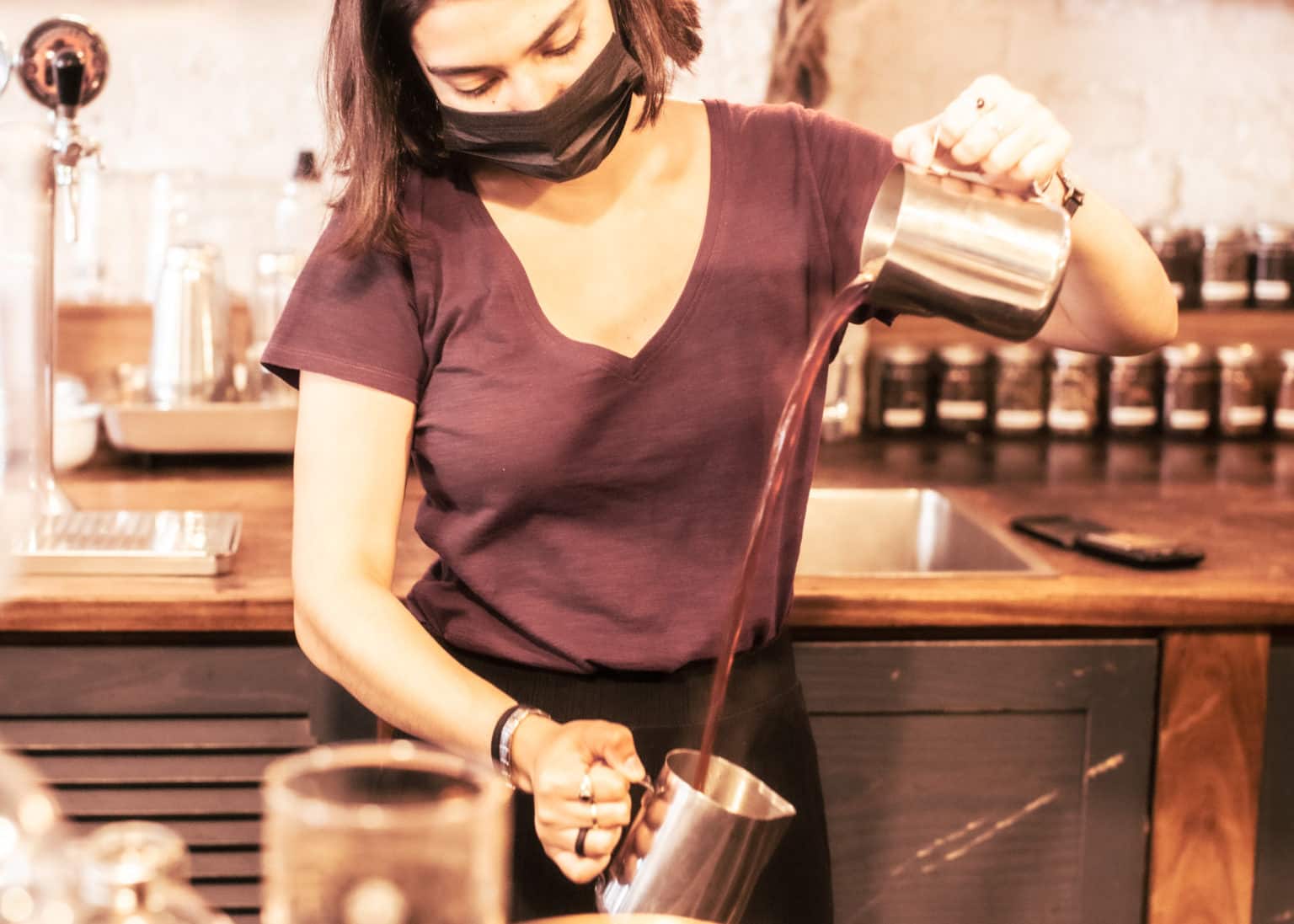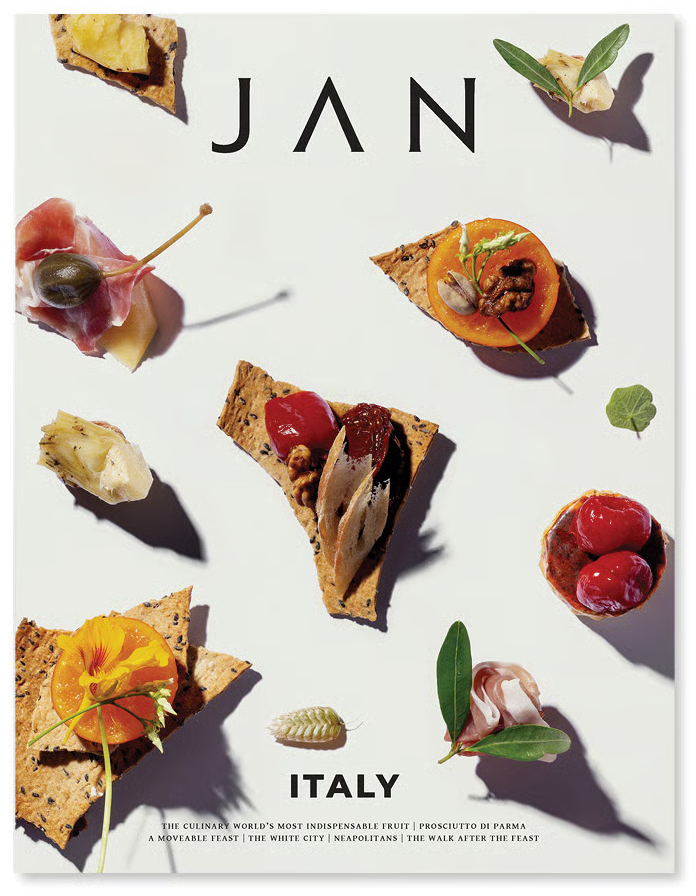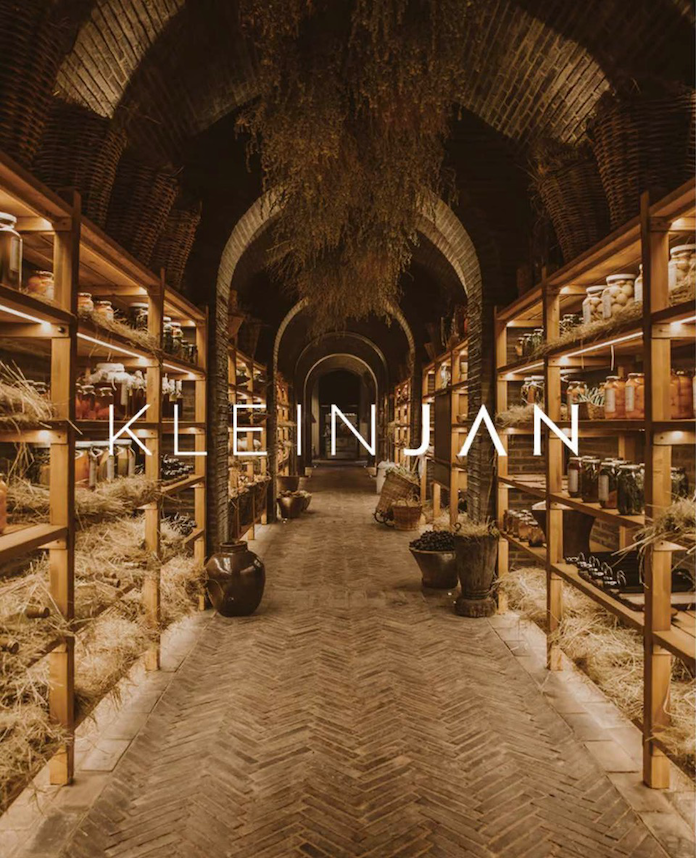COFFEE CAPITAL
THE ORIGINS OF THE CAPE TOWN COFFEE SCENE
Today, Cape Town is considered the darling of the South African coffee world – much like Melbourne is to Australia – but until the mid-2000s, getting a decent cup of coffee on the average café visit anywhere in South Africa amounted to little more than a slightly burnt cup of filter coffee, and in some instances, instant. Those who took their coffee seriously sought out Italian-owned cafés where they could get a proper espresso-based cuppa, which relied (and still does) on established Italian coffee brands. At the time, finding a café that brewed South African-roasted coffee (or indeed roasted their own) was all but impossible. But that all changed when a man from Montréal arrived in the Mother City and decided it was time for a change.

PRE-ORIGIN
To Joel Singer, arriving in Cape Town was the start of a new chapter. Originally of Polish-Jewish descent, he grew up in Quebec, but had lived in Paris where he fell in love with café culture, and later in Seattle, where he worked for Microsoft. The French connection meant that food and dining was always a big part of his life, and everywhere he went, he was surrounded by people who were really into their coffee.
“Cape Town was, without a doubt, more beautiful than Seattle,” Joel reminisces, “but the artisanal coffee scene so prevalent today was non-existent. I didn’t meet anyone who was obsessed with coffee. There was no urban space where people could experience locally roasted coffee together, whereas that was just how it was done in Seattle. Cape Town had so much potential, and you could feel what the city was becoming. I saw a gap.”
A NEW AGE IN COFFEE
Origin opened its doors in Cape Town’s trendy De Waterkant district in 2006. The beautiful brick warehouse, which is still the home of Origin today, set the perfect scene – reminiscent of the grungy Seattle coffee scene of the 1990s – and the perfect place for roasting all their own coffees.
Joel’s path had crossed that of Jorge Alberto in the late 90s when he first arrived in Cape Town. Jorge hailed from Angola and was working at Joel’s local Spar at the time. At one point, under Portuguese rule, Angola was the fourth largest exporter of coffee in the world, so Jorge had a natural passion for coffee. He became Origin’s first employee, starting as a barista, then senior barista, then roaster and eventually, head roaster. Today, Jorge also manages the company’s trade client relationships and quality support.
IT’S TIME FOR AFRICA
What you might not know is that Africa is the birthplace of coffee, which is why the boom in local African coffee roasters is so thrilling. “At the moment, I find Kenyan and Ethiopian coffees to be the most exciting,” Jorge says, “Roasting a Kenyan coffee, you have a big range to work with from light to medium. It’s similar with Ethiopian coffee. In my opinion, Brazilian coffee doesn’t give you as many options across the same range. It’s a lot like wine. Some regions just do certain varietals better.”
Joel adds, “Our philosophy has always been to be the wine of the coffee world. We wanted to elevate the coffee experience to the level of fine dining.” Although Origin was well poised to become South Africa’s most prolific coffee roastery, having had little-or-no competition at the time, their intent was never to lose their artisanal spirit. “We don’t want to be the orchestra,” says Joel, “but we want to be the Stradivarius.”
THE ART OF TASTING
While many visitors to Origin opt for the usual flat white or cappuccino fare, their coffee experience goes well beyond seen-one-seen-‘em-all. Serious coffee lovers often partake in a coffee tasting similar to what professional coffee tasters do when visiting coffee trade fairs. “It’s a standardised style of tasting that strips away what the machine does to the taste,” Joel says. “Tasting coffee in this way doesn’t rely on the barista’s skill, but rather allows you to pick up on a coffee bean or roast’s unique characteristics.”
“Dark roasts tend to hide the coffee’s characteristics,” says Jorge, “ so it’s often used to hide a coffee’s flaws.” Origin does 50 different roasts every year, four of which are seasonal blends, and 46 of which are other, single origin coffees. The best way to taste a variety of coffees – especially fun when comparing regions and terroirs – is to do a professional taste testing of five roasts side by side.
TAKING IT TO THE NEXT LEVEL
Origin Coffee pioneered Cape Town’s reputation for being South Africa’s coffee capital and for having the best purveyors of good, locally roasted coffee in South Africa. Today there are numerous cafés and eateries scattered across the Cape that roast their own coffees, but few offer a professional coffee tasting.
To arrange a coffee tasting at Origin – or to sign up for their Barista Academy – visit Origin Online or pop in at their De Waterkant location in Cape Town.















